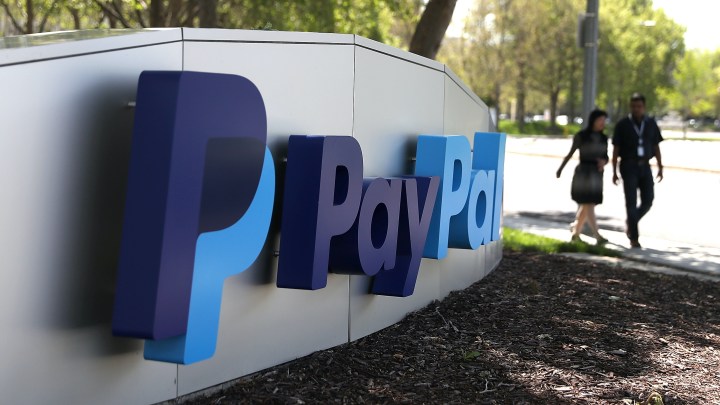
New small businesses have helped P2P payment apps boom during the pandemic
New small businesses have helped P2P payment apps boom during the pandemic

The pandemic has done a lot to spur the growth of peer-to-peer payment apps, such as Square’s Cash App, Venmo and Zelle. One of the reasons P2P payments have been thriving is that a whole lot of new businesses have launched during the pandemic — especially side hustles that rely on P2P apps to take in revenue.
For about nine years, Ashley Franz has been applying spray tans in Annapolis, Maryland. She mostly did them as a hobby for friends and family, along with the cheerleaders she used to coach before the pandemic.
Franz said she never thought of it as a business venture, but when COVID-19 hit, Franz suddenly had a lot of free time. In April — one month into the pandemic — Franz created Sunburst Tans, which offers in-studio tans and tans in people’s homes.
“I just felt like, ‘what better time than now?’” she said.
Franz said for her customers, keeping contact to a minimum is important. The tanning process doesn’t require physical contact, and many of her customers prefer to use Venmo, Paypal and Zelle.
“That’s one of my frequently asked questions,” Franz said. “‘How do you accept payment?’ So I’m happy to be able to offer that.”
According to U.S. Census data, the number of new business applications doubled in the early stages of the pandemic.
“People at home, out of work, get creative about how to generate some cash,” said Lisa Ellis, an analyst with MoffettNathanson.
Ellis said the growth of those businesses has really helped P2P apps grow, too.
“Maybe the independent fitness instructor, or babysitter, or dog walker,” Ellis said. “[They] drive a large amount of the volume over these services.”
Business owners say they like P2P apps because they’re seen as a safer way to handle payments these days.
Felipe Chacon, an economist with the payments company Square, said industries that have shifted away from cash the fastest have been the ones hit hardest by the pandemic. Those include restaurants, health and fitness studios, and the beauty industry.
“In the beauty and personal care sector, we see that the share of cashless businesses nearly doubled, jumping from 11% pre-pandemic to around 20% now,” Chacon said.
As more businesses started using P2P apps, they started paying each other with them, too.
“Everyone has quickly adopted it,” said Jess Harrington, who launched the Boston-based JessFinessed, a real estate staging firm, in January 2020.
Harrington uses P2P apps to pay for many of the services involved in staging a home for sale.
“We’re paying out to movers, contractors, painters, photographers, electricians,” said Justin Harrington, who manages books for the company.
Jess Harrington said there’s another upside to P2P apps: as soon as her clients pay her with one, she can spend that money right away, instead of waiting a few days for a credit card transaction to clear.
“The more immediate cash that I have, through Venmo, primarily, the easier it is to move quick and do business,” she said.
Harrington said she’s been doing a lot of business ever since the real estate market started exploding last year.
There’s a lot happening in the world. Through it all, Marketplace is here for you.
You rely on Marketplace to break down the world’s events and tell you how it affects you in a fact-based, approachable way. We rely on your financial support to keep making that possible.
Your donation today powers the independent journalism that you rely on. For just $5/month, you can help sustain Marketplace so we can keep reporting on the things that matter to you.

















